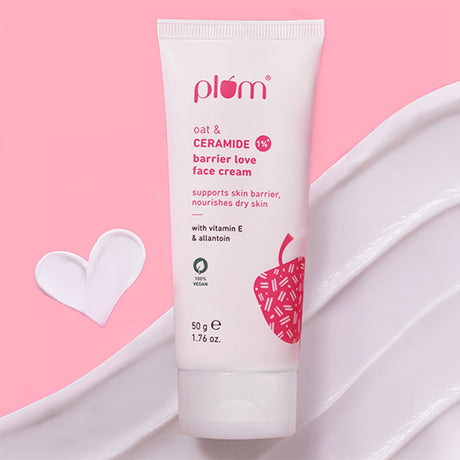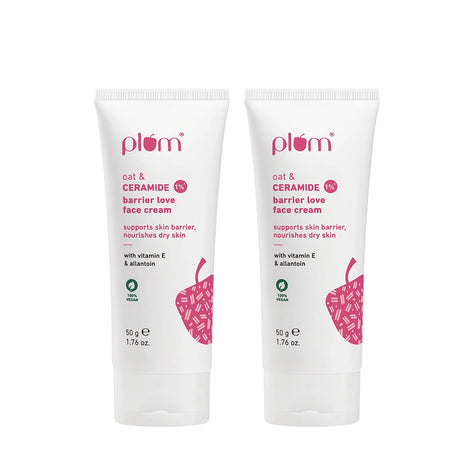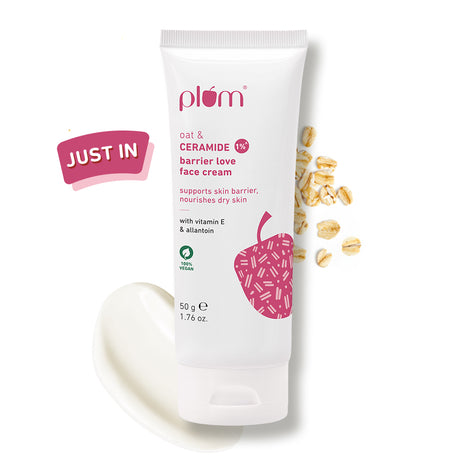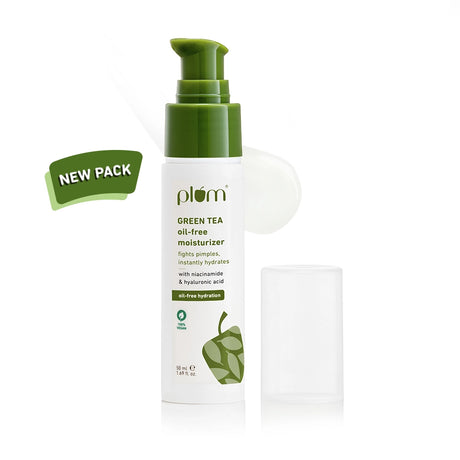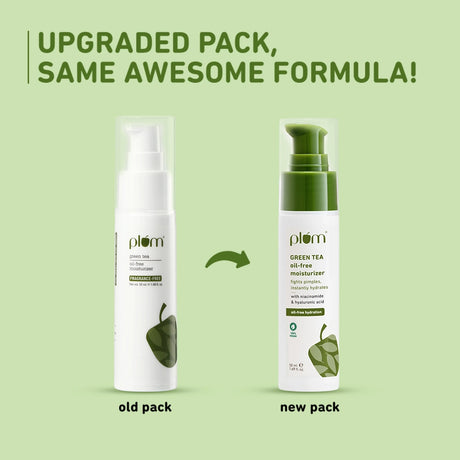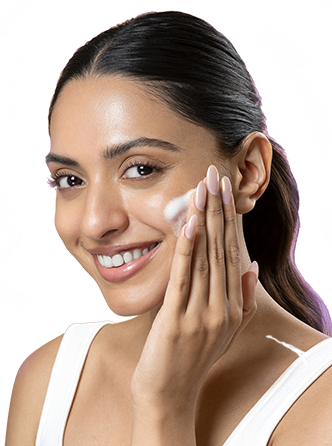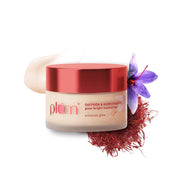
It's no secret that having clear skin is everybody’s dream. And to achieve it, people go to any extent, experimenting with new products, formulas, and treatments without assessing the adverse impact they have on the skin.
However, rather than cluttering your dressing with more products, you need to focus on understanding the real culprit behind many skin issues – a damaged skin barrier.
Simply put, the skin barrier is the outermost layer of your skin that protects it against the external elements. While the skin barrier might not be something you usually think about, it holds the key to how to repair skin barrier. In this article, we'll explore what the skin barrier is, why it's important, and how to repair damaged skin barrier.
Additionally, we'll also provide you with a targeted skincare routine that could aid in skin barrier repair. Let's get started.
What is the skin barrier?
The skin barrier, also known as the moisture barrier, is the topmost layer of the skin that acts as a protective shield. It is composed of cells and lipids and is the first line of defense against environmental aggressors, dirt, pollution, etc.
The beauty of the skin barrier is such that while it works relentlessly to keep all the harmful elements outside your body, it retains the good stuff, i.e., moisture inside to give you hydrated and plump skin.
Why does the skin barrier matter?

Protecting your skin barrier is important as it determines how your skin looks and feels.
Your skin barrier is the key to your overall skin health.
It defends your skin from external aggressors like irritants and allergens while preventing the loss of moisture, keeping your skin nourished and healthy.
What Causes Skin Barrier Damage?
Many factors can damage skin barrier. We can categorize them into external and internal factors.
External factors
1. Extreme temperatures, such as excessive heat or cold. (this is why your skin tends to get dry and dehydrated during summers and winters).
2. Usage of chemical irritants or active ingredients that can be too harsh for your skin, like AHA or retinol, or their incorrect usage. Excessive exfoliation can also lead to barrier repair issues.
3. Aging (As you age, the ceramide level decreases, weakening your skin barrier).
Internal factors
1. Illness.
2. Medical or genetic conditions like diabetes.
3. Skin diseases like eczema.
4. Smoking.
5. Stress.
Having said this, one common reason for damaged skin barrier that people tend to ignore is the overuse of skincare products. Using too many different products on your skin at the same time can also compromise the skin barrier.
How can you identify a damaged skin barrier?
A simple way to know if you have damaged skin barrier is to identify if your skin is acting strangely. For instance, your skin barrier is probably compromised if:
- Your skin suddenly feels tight, dry, or flaky.
- Your skin feels irritated, inflamed, or ashy after using any product or chemical formula.
- You notice excessive or sudden acne breakouts, eczema, or other skin issues.
- The texture of your skin has changed, like feeling rough, tender, or dry.
- You are noticing premature aging. (With age, the production of lipids, fats, and ceramides slows down, making it difficult to retain essential nutrients and vitamins in your skin).
Every skin is different, so you will need to identify how your skin reacts to different situations,
How to repair your skin barrier
Though fragile, your skin barrier is capable of repairing itself. However, to help it repair, you need to give it time to heal. Avoid following the same routine that led to the damaged skin barrier.
Instead, switch to a gentle and simpler routine and load up on moisturizers while avoiding any kinds of exfoliators, irritants, and active ingredients.
Here’s how to repair skin barrier naturally.
1. Recheck Your Skincare Routine
Unknown to you, your skincare routine could be harming your skin barrier. Recheck your routine and see if you are using any product that is not suitable for your skin type or concern.
Until your skin gets back to normal, It's best to simplify your skincare routine and stick to minimal products that suit your skin.
2. Adding Barrier-Repairing Ingredients to Your Routine
To repair and protect your skin barrier, add skincare products that contain barrier repair ingredients like humectants, ceramides, and antioxidants.
Humectants
Humectants draw water to your epidermis (skin’s topmost layer) from the environment or the skin’s deepest layers to replenish lost moisture in your skin. Some common examples of humectants are aloe vera, hyaluronic acid serums, shea butter, and glycerin.
Plum’s Suggestion: Use plum green tea oil-free moisturizer that contains niacinamide and hyaluronic acid for a hydrated and dewy glow. You can also treat your dry and dehydrated skin with hydrating serum.
Ceramides
When you apply ceramide to your skin, it mimics the natural moisturizing function of your skin to retain hydration and provide nourishment. If you are looking for the best moisturizers for skin barrier repair, opt for formulas rich in ceramides, jojoba oil, squalane, etc. You can use ceramides moisturizer.
3. Lead a balanced lifestyle
While you work on your skin externally, ensure that you support the process by leading a balanced lifestyle. Drink adequate water to keep your body and skin hydrated. Include fruits and vegetables in your diet and steer clear of alcohol and smoking. Moreover, manage your stress, as it can further weaken your skin barrier by slowing down the healing process.
4. Keep away from artificial fragrances:
As your skin’s natural shield is already weak, avoid ingredients that can weaken it further. Avoid products containing harsh chemicals, fragrances, essential oils, and sulfates, and switch to fragrance-free gentle products.
Skincare: How to Fix a Damaged Skin Barrier
Restricting your routine to just a simple cleansing, hydrating, and protecting is the first step to skin barrier repair.
- Opt for a gentle and nourishing cleanser to remove dirt, oil, and impurities from your skin without stripping away your natural oils. Do not use scrubs or harsh exfoliants.
- Nourish your skin with a hydrating moisturizer consisting of humectants or ceramides for the skin, as it helps restore and repair skin barrier.
- A nourishing moisturizer like the plum 1% oat & allantoin all-day nourishing cream, is one of the best moisturizers that contains barrier-boosting ingredients like 1% prebiotic oats, allantoin, vitamin E, and B5. While oats strengthen your skin barrier by making it more resilient to external irritants, allantoin helps soothe dry and inflamed skin, giving you hydrated and nourished skin.
- If your skin feels dehydrated and tight, add a hydrating face serum before applying a moisturizer.
- Apply sunscreen to protect your skin from sun damage by using a dewy sunscreen that shields your skin from UVA and UVB rays.
It can take two to three weeks before you start seeing results. Continue the routine without making changes.
Your damaged skin barrier might not be in the spotlight, but it's the unsung hero of your skincare journey. By understanding its importance and taking steps to maintain and repair skin barrier, you're well on your way to healthy and glowing skin.
FAQs
Q1. What is the skin barrier?
The skin barrier is the topmost layer of your skin that acts as a protective shield and keeps it healthy. It is the first line of defense, protecting your skin against external aggressors, pollutants, and allergens.
Q2. Why does the skin barrier matter? What does the skin barrier do?
The skin barrier helps protect, hydrate, and repair your skin. It prevents irritants and infections from entering your skin. Moreover, it retains moisture and prevents water loss, keeping your skin nourished.
Q3. How can you maintain the skin barrier?
Here’s how to fix skin barrier and maintain it:
- Follow a simple and hydrating skincare routine.
- Avoid overuse of exfoliation and active ingredients.
- Do not use too many skincare products at the same time.
- Moisturize your skin adequately.
- Protect your skin against sun damage and extreme cold.
Q4. How can you repair the skin barrier?
To fix damaged skin barrier, avoid exfoliators, irritants, and active ingredients. Use a gentle and simpler skincare routine and focus on skin barrier repair with ceramide-rich products.



